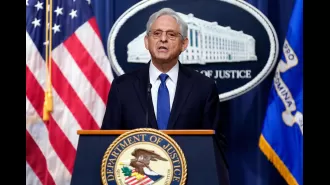Miscarriage nearly took my life by surprise.
I panicked and called for my husband, who rushed upstairs before I lost consciousness.
June 9th 2024.

It was a normal day for Joanne, or so she thought. She had been eagerly anticipating the arrival of her second child, and everything seemed to be going smoothly. But then, she felt a sharp pain in her head and screamed for her husband's help. The last thing she remembered was him rushing up the stairs before she passed out.
When she regained consciousness, it was all a blur. She could vaguely recall the paramedics checking her vitals and being rushed to the emergency ward. Doctors, nurses, and other staff members were buzzing around her, discussing blood transfusions. But amidst all the chaos, one thought stood out clearly in her mind - she was bleeding to death.
It all started in February of 2024 when Joanne realized she had missed her period. She and her husband had been trying for another baby, and to their delight, it happened quickly. They were overjoyed at the positive pregnancy test, and the thought of completing their family with a second child.
The early days of her pregnancy were similar to her first experience - morning sickness. There was no reason to suspect that anything was wrong. With her first pregnancy, she had waited until the 12th week for a scan, but this time, she had an abdominal scan scheduled in February for a fibroid - a non-cancerous growth in her womb that needed to be investigated.
At the fibroid appointment, Joanne mentioned to the doctor that she was around seven weeks pregnant. The doctor advised her to go to the Early Pregnancy Unit for further evaluation. At the EPU, she was told that her pregnancy may not be progressing as it should, as there was no heartbeat. It was devastating news, and Joanne was alone at the appointment, making it even harder to bear.
The next day, Joanne returned to the EPU, hoping for a different outcome. Unfortunately, the scan showed no change. The doctor confirmed that she had suffered a silent miscarriage - a heartbreaking and distressing experience. Unlike a typical miscarriage, where there are physical signs like bleeding and cramping, a silent miscarriage occurs when the baby has died or not developed, but has not been physically miscarried.
Joanne was given three options - conservative management, surgery, or medication to induce the miscarriage. She chose the first option, hoping that it would happen like a heavy period. However, she was not warned about the risk of a massive haemorrhage. Neither the talk she had with the EPU nor any of the leaflets or NHS literature she read mentioned it. Joanne was left in the dark about the potential danger.
When she started bleeding heavily at 13 weeks pregnant, she didn't think much of it. But then, she collapsed. At the hospital, her condition deteriorated rapidly, and she was given two litres of oxygen and put on an IV drip. She underwent surgery the next morning, but due to the amount of blood she had lost, she needed two blood transfusions before the surgery could be performed.
After the surgery, Joanne required a third blood transfusion and was told that the pregnancy had been removed successfully. She was still very weak and had to undergo additional check-ups to monitor her recovery. It has been six weeks since that terrifying experience, and Joanne is still struggling with physical and mental trauma.
She wants to raise awareness about the risk of massive haemorrhage in pregnancy. Her near-death experience was a wake-up call for her, and she wants other women to be aware of the potential danger. Joanne is grateful to be alive and has been advised that she can try for another baby in the future. However, she hopes that there will be more education and knowledge about this life-threatening condition.
Joanne's story serves as a reminder that pregnancy is not always a smooth journey, and there can be unexpected complications. Her husband's quick thinking and the prompt action of the medical staff saved her life. She encourages women to listen to their bodies and seek medical help if they experience any concerning symptoms during pregnancy. Joanne wants women to know the risk of massive haemorrhage in pregnancy, so they can be better prepared and informed.
When she regained consciousness, it was all a blur. She could vaguely recall the paramedics checking her vitals and being rushed to the emergency ward. Doctors, nurses, and other staff members were buzzing around her, discussing blood transfusions. But amidst all the chaos, one thought stood out clearly in her mind - she was bleeding to death.
It all started in February of 2024 when Joanne realized she had missed her period. She and her husband had been trying for another baby, and to their delight, it happened quickly. They were overjoyed at the positive pregnancy test, and the thought of completing their family with a second child.
The early days of her pregnancy were similar to her first experience - morning sickness. There was no reason to suspect that anything was wrong. With her first pregnancy, she had waited until the 12th week for a scan, but this time, she had an abdominal scan scheduled in February for a fibroid - a non-cancerous growth in her womb that needed to be investigated.
At the fibroid appointment, Joanne mentioned to the doctor that she was around seven weeks pregnant. The doctor advised her to go to the Early Pregnancy Unit for further evaluation. At the EPU, she was told that her pregnancy may not be progressing as it should, as there was no heartbeat. It was devastating news, and Joanne was alone at the appointment, making it even harder to bear.
The next day, Joanne returned to the EPU, hoping for a different outcome. Unfortunately, the scan showed no change. The doctor confirmed that she had suffered a silent miscarriage - a heartbreaking and distressing experience. Unlike a typical miscarriage, where there are physical signs like bleeding and cramping, a silent miscarriage occurs when the baby has died or not developed, but has not been physically miscarried.
Joanne was given three options - conservative management, surgery, or medication to induce the miscarriage. She chose the first option, hoping that it would happen like a heavy period. However, she was not warned about the risk of a massive haemorrhage. Neither the talk she had with the EPU nor any of the leaflets or NHS literature she read mentioned it. Joanne was left in the dark about the potential danger.
When she started bleeding heavily at 13 weeks pregnant, she didn't think much of it. But then, she collapsed. At the hospital, her condition deteriorated rapidly, and she was given two litres of oxygen and put on an IV drip. She underwent surgery the next morning, but due to the amount of blood she had lost, she needed two blood transfusions before the surgery could be performed.
After the surgery, Joanne required a third blood transfusion and was told that the pregnancy had been removed successfully. She was still very weak and had to undergo additional check-ups to monitor her recovery. It has been six weeks since that terrifying experience, and Joanne is still struggling with physical and mental trauma.
She wants to raise awareness about the risk of massive haemorrhage in pregnancy. Her near-death experience was a wake-up call for her, and she wants other women to be aware of the potential danger. Joanne is grateful to be alive and has been advised that she can try for another baby in the future. However, she hopes that there will be more education and knowledge about this life-threatening condition.
Joanne's story serves as a reminder that pregnancy is not always a smooth journey, and there can be unexpected complications. Her husband's quick thinking and the prompt action of the medical staff saved her life. She encourages women to listen to their bodies and seek medical help if they experience any concerning symptoms during pregnancy. Joanne wants women to know the risk of massive haemorrhage in pregnancy, so they can be better prepared and informed.
[This article has been trending online recently and has been generated with AI. Your feed is customized.]
[Generative AI is experimental.]
0
0
Submit Comment





